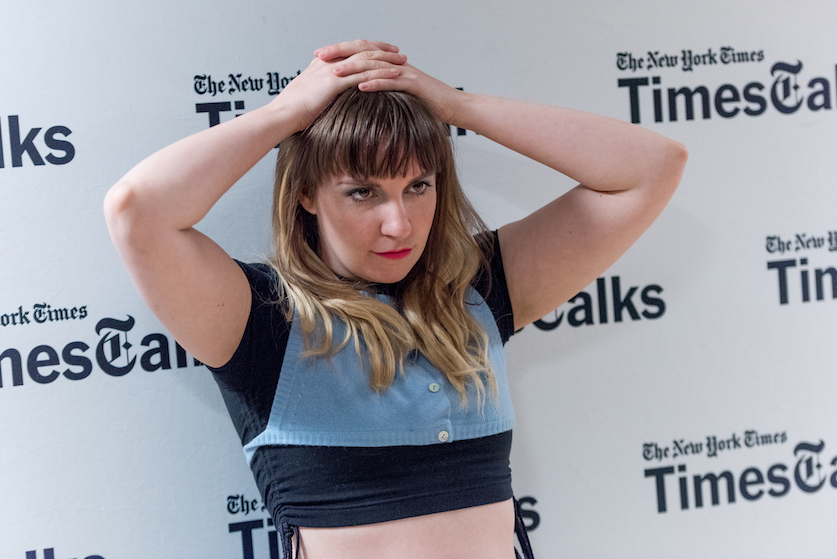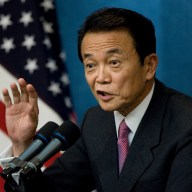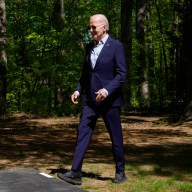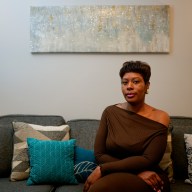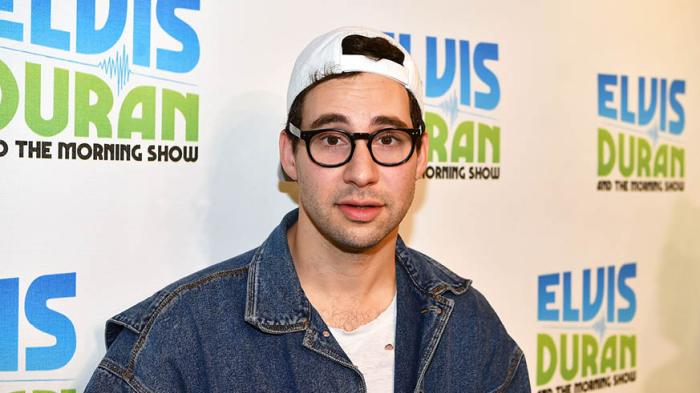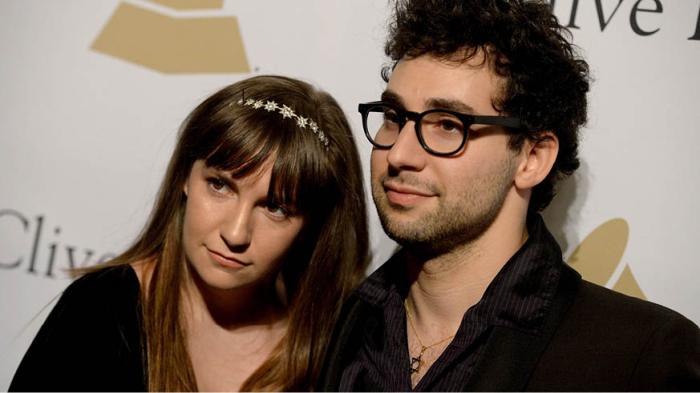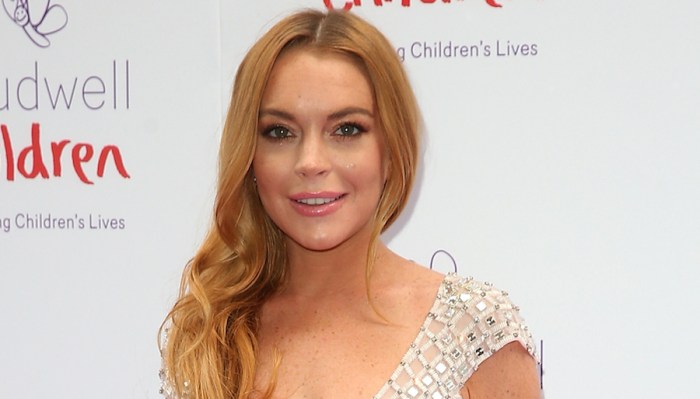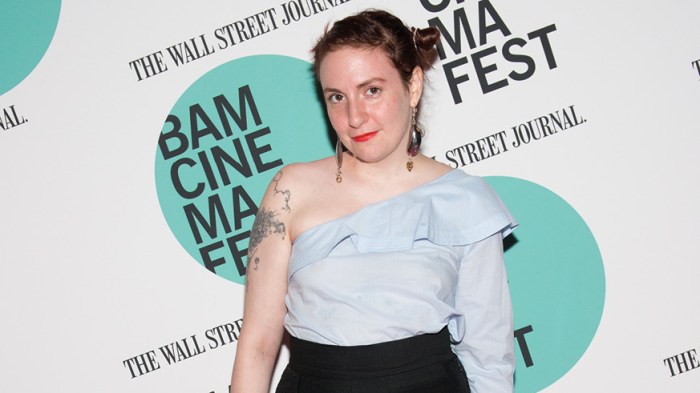It’s taken six years, but I’ve finally come to the realization that “Girls” is not a show for me — and it never intended to be.
As a Black woman, I don’t expect to see myself or to be able to relate to most shows. But with Lena Dunham’s television debut, I had high hopes. Perhaps too high: Based on the quippy, quotable trailer — and the raw, devil-may-care attitude of “Tiny Furniture” — I expected “Girls” to be a show that “got me.” I remember the teaser clearly: “I’m the voice of my generation… or at least a voice of a generation.” I thought, or at least I hoped, that Dunham was talking to me. But after watching a few seasons of a show void of people of color or any perspective or attitude I could wrap my head around, I gave up. After a while, I realized Dunham wasn’t talking to me, as a woman of color, and she didn’t particularly want to. I took it pretty personally. Now, on the eve of the series finale, I find myself thinking that I had unrealistic expectations of the show and its writers in the first place.
Diversity has never been a high priority for creators Dunham and showrunner Jenni Konner. In the Hollywood Reporter’s oral history of the show, Konner admitted as much point blank. “I knew [the lack of diversity] would be an issue, but I didn’t think the criticism would be at the level it was,” she told the magazine. “But at the time, we were so focused on the struggle of women and the fact that we’d gotten four women on TV.”
Plus there’s the varied, callous statements that Dunham herself has made about race. “The race stuff blew up first,” Dunham told the Hollywood Reporter. “The second night we aired was the first time I met my boyfriend [musician Jack Antonoff]; we were on a blind date. I had been metabolizing the criticism all week, and I made a really, really dumb joke that I’m perfectly fine to repeat now ‘cause I was f—in’ 25. ‘No one would be calling me a racist if they knew how badly I wanted to f—k Drake…’ I just didn’t get it.”
She still doesn’t — and how could we expect her to, since as late as the age of 25, she thought it was okay to make a racialized joke about Drake? As recently as last year, she took to Twitter to insist that Odell Beckham Jr ignored her at the Met Ball because she wasn’t f—kable, ignoring America’s long history of sexualizing and devaluing Black men. Again, just for a joke. As Zeba Blay at the Huffington Post notes, while Dunham is likely trying to be self-deprecating and funny (arguably as much in her show as in real life) most of what comes across is a profound sense of entitlement.
“Girls” shouldn’t have the responsibility of speaking for young women everywhere. Surely, there are fans of the show that can relate to the characters’ experiences, or enjoy it otherwise. But what are the limits of inclusion and diversity in television? I was curious about whether or not Dunham and her show made other people feel all the feels I’m feeling; so I talked to four women of color about the HBO hit series, Dunham, and what impact the show had on their lives.
Nicole Lewis , Journalist. 29.
Nicole is an avid fan of the show — and while she feels not every show has the responsibility to be diverse, she actually enjoys “Girls” for its incessant navel gazing. “I really appreciate people being awful in television. Adam is awful, Jessa is awful, they’re all really really gross and I can not relate to any of it. It’s insight into a world I don’t belong to. I tend to think that [the world of ‘Girls’] is a representation of the way that a lot of people live. It’s super segregated. That white world exists and it’s f—ing fascinating.”
Nia Groce, 26. Writer
Nia, on the other hand, barely gave the show a chance and doesn’t really feel like she’s missing out. “I didn’t even know the show still came on. In general I don’t watch a lot of TV, but [when ‘Girls’ came out] I kept hearing about it and I wanted to get into it and I wanted to watch it… Then I started hearing negative things about Lena Dunham. Every time I hear about Lena Dunham it’s been in a negative light — this last year… I think it was the Odell Beckham Jr. thing. It confirmed that it was fine for me and I was content with the fact that I never did watch that show and I probably won’t.”
Vanessa Ng, 30. Product Developer.
Vanessa questions whether Donald Glover’s brief role was a bid to appease critics — or rile them up even more. “I started watching ‘Girls’ because as a young twenty-something that also moved to New York for my career, I thought ‘maybe this is something relatable.’ I don’t know if it’s fair to have projected my own expectations onto the show but that’s what happened. I was hoping to see some sort of becoming an adult and figuring out your s—t and it just never happens. These people are still acting like children… can they do this because they’re white women? It just became too much.
“Another thing that bothered me was the whole Donald Glover thing, where I feel like it was just a reaction to criticism that she got after season one for not having people of color. It was basically a middle finger, a f—k you to all the people criticizing her for not having characters of color. He was a prop for her and nothing else. It was a childish reaction — ‘We did what you asked us to do!’ That really bothered me.”
Mimi Phillips*, 25. Actor
Mimi can’t really see how you can make a show named “Girls” without representing, well, a variety of girls. “Where we’re at in the world, four white women leads [is ridiculous]. We dealt with it with “Sex and the City” in a way different time, but I can’t give “Girls” a pass.
“The fact that we’re not seeing [diversity] shows how much a lot of the world doesn’t know how to tell that story, because they haven’t immersed themselves within it. It’s honestly scary because I think a lot of white people, white creators [don’t know how to approach it]. They don’t know where to begin! So they just don’t. And probably, [Lena Dunham], that is her experience. I’m sure she hasn’t immersed herself.
“Its tough to be a female show because there’s so many different issues to tackle. But you could also throw some other shades up in there and we could really call this ‘Girls’ and be a little bit truer about that.”
*Name has been changed.

